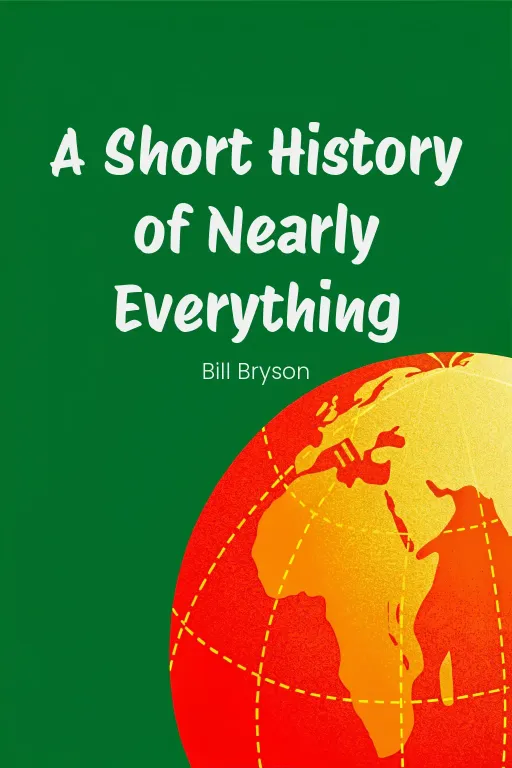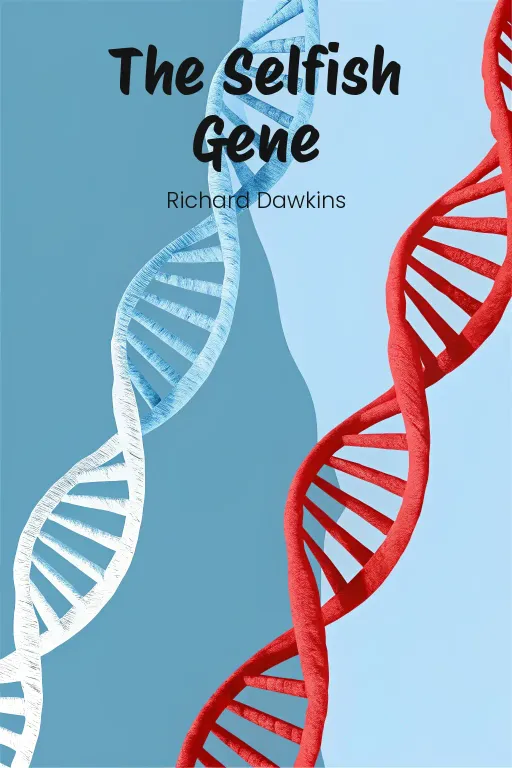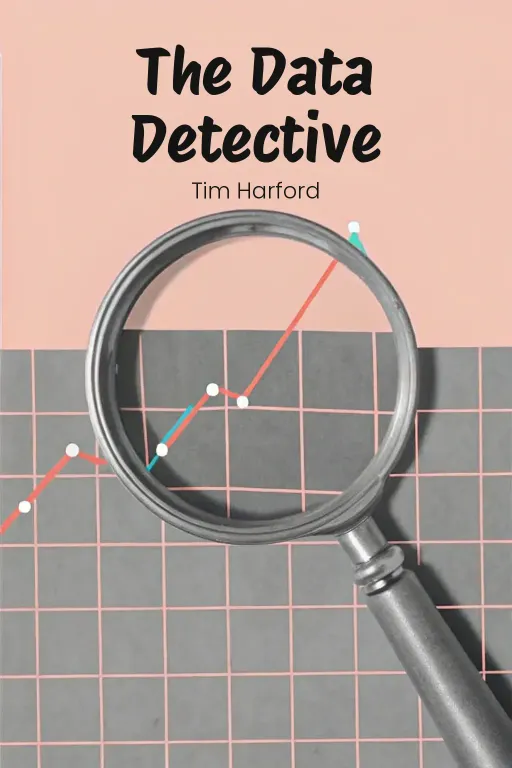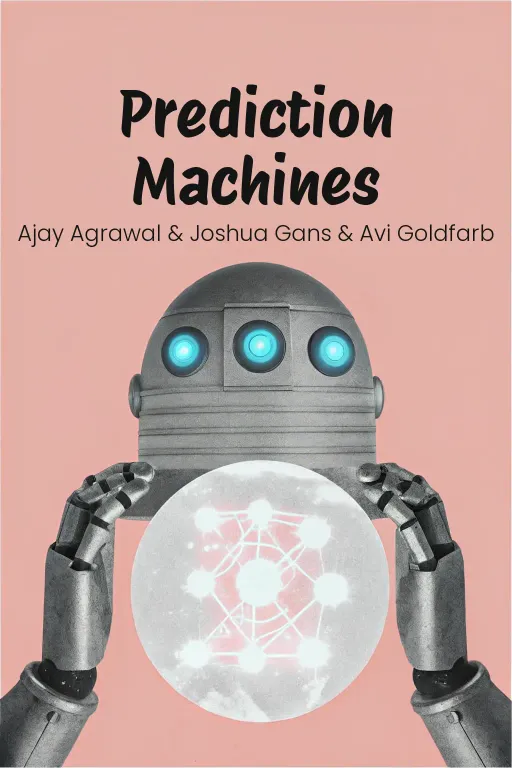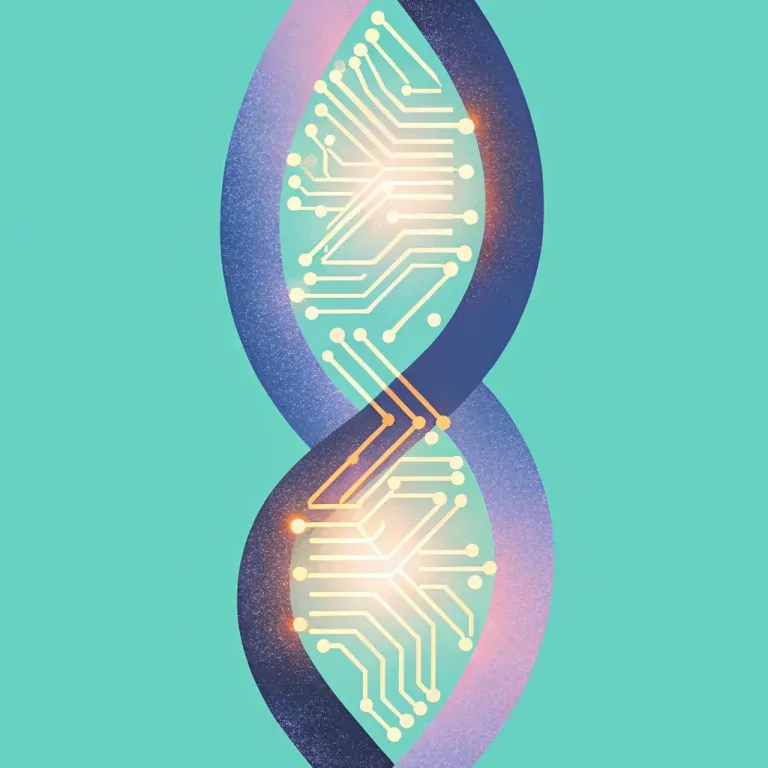
Quantum Leap: Cure Disease & Redefine Reality?
Podcast by Wired In with Josh and Drew
How the Quantum Computer Revolution Will Change Everything
Quantum Leap: Cure Disease & Redefine Reality?
Part 1
Josh: Hey everyone, welcome back! Today we're diving into something really exciting: quantum computing. Imagine a future where we can cure diseases before they even show symptoms, unlock limitless clean energy, and tackle climate change with incredible precision. That's the promise of quantum supremacy. Drew: Okay, Josh, those are some pretty big claims! Let's be honest, for most of us, even figuring out what a quantum computer is feels like pure science fiction. Computers existing in two states at once? Sounds more like the plot of a superhero movie than actual science. Josh: Exactly, Drew! And that's what makes it so fascinating. The book we're discussing today, Quantum Supremacy: How Quantum Computers Will Unlock the Mysteries of Science – and Address Humanity’s Biggest Challenges, throws us right into this potentially transformative future. It blends the complex science with real-world implications. Think of it as a practical guide to solving problems we haven't even fully defined yet. Drew: So, you're saying it's about taking these wild quantum mechanics concepts and applying them to real-world problems? Keeping one foot on Earth, so to speak? Josh: Precisely! The book explores how quantum computers could surpass the limits of our current computers. It then goes into how they might help us fight climate change, solve food shortages, and it also touches on the huge ethical responsibility that comes with this kind of tech. Drew: Alright, so here’s our plan for today. To start, we’ll break down the basics: how these machines work and how qubits blow away anything your laptop can do. Josh: Then, we're going to dive into the potential real-world impacts. Think about revolutionizing medicine, finding new energy sources, and even mimicking nature to solve global issues. Drew: And finally... the really interesting part. We’ll dig into the big ethical and philosophical questions. If quantum tech is this powerful, who gets to decide how it’s used? And can we prevent it from being misused? Is this a Pandora's Box situation? Josh: So, buckle up! We're about to explore the amazing, challenging, and sometimes mind-bending possibilities of quantum computing.
Rise of Quantum Computers
Part 2
Josh: Alright, let's dive in. Why do we even “need” quantum computers? What's so wrong with the good old classical computers we've been using for, well, decades? Drew: Exactly! I mean, my laptop gets the job done, most of the time anyway. Sure, it’s a little slow now and then, but it’s not like everyone's ditching their silicon chips tomorrow. So, is this rush really necessary? Josh: That’s the perfect question, Drew. And the answer really comes down to something called Moore’s Law. For ages, it was the guide for tech progress. Basically, it said the number of transistors on a chip would double every two years, which meant double the computing power. But we're bumping into the physical limits of silicon now. Transistors are microscopic these days—just a few nanometers—and issues like electron leakage and overheating are slowing things down. Drew: So, Moore's Law is losing steam, huh? That’s the real barrier? Josh: Precisely. And that's where quantum computers step in. Instead of relying on classical bits—those 0s and 1s traditional computers use—quantum computers use qubits. And because of quantum principles like superposition and entanglement, qubits can be in multiple states at the same time. Giving them a form of parallelism that classical computers simply can't achieve. Drew: Okay, hold on. Superposition and entanglement – those are the buzzwords everyone throws around to sound smart about quantum computing. But, in plain English, what do they really mean? Josh: Great point. Superposition is the ability for a qubit to exist in multiple states at once. Think of Schrödinger’s cat – both alive and dead until you peek inside the box. Instead of just being a 0 or a 1, a qubit can be a combination of both at the same time. This is what gives quantum computers their massive potential. Drew: Right, and entanglement? Josh: That's the really mind-bending one. If two qubits are entangled, the state of one is instantly linked to the state of the other, no matter how far apart they are. Einstein famously called it "spooky action at a distance." In computing, this connection allows quantum systems to share and process information in ways classical systems just can't. Drew: So, am I right in thinking that classical bits are like light switches – either on or off? But qubits are like dimmers, with all the possible settings in between? Josh: Absolutely. But with the added twist that these dimmers can be connected in ways classical systems can only dream of! This allows quantum computers to potentially tackle problems that would take classical systems billions of years to solve. Drew: Which leads to the term everyone loves to throw around: quantum supremacy. Basically, it's when a quantum computer beats the best classical computer at a specific task. But let's talk about what that actually looks like. Google's Sycamore processor, right? That made headlines. Josh: Yes, in 2019, Sycamore did a calculation in 200 seconds that would take the fastest classical supercomputer roughly 10,000 years. Now, the task – random quantum circuit sampling – was more a demonstration than practical. But it was proof that quantum computers could do things classical systems just can't. Drew: Okay, playing devil's advocate again. If the task wasn't practical, why does any of this matter? Is this like setting a world record for juggling chainsaws? Impressive, but not that useful? Josh: It's a fair criticism, Drew. But think of it as a proof of concept. Like the Wright brothers’ first flight, it signaled we crossed a threshold. Other platforms pushing the limits too. Jiuzhang, the Chinese photonic quantum computer, completed a task in 2020 100 trillion times faster than classical systems. Drew: Photonic computing, another quantum flavor. Google uses superconducting circuits; Jiuzhang uses photons. So we’re still figuring this out, like Betamax versus VHS. Josh: Exactly – it's a vibrant field with multiple approaches. And that shows we're in the early stages of something big. Quantum supremacy isn't just about speed. It’s about unlocking a new way to simulate nature, optimize systems, and tackle challenges we can't define yet. Drew: And that's where the investment frenzy comes in. Now the corporate and geopolitical chess game begins. With Google and IBM competing for quantum dominance, we are talking billions in research funding, and not just from private sectors. Governments are investing too. Josh: Absolutely. The National Quantum Initiative Act in the US is pumping funds into research partnerships. China's efforts, like Jiuzhang, show a push for leadership in quantum tech. Even Wall Street is involved – startups like IonQ and PsiQuantum are raising hundreds of millions of dollars, often without a commercially viable product yet. Drew: Which makes you wonder. Why is there so much financial hype for something that's…well, still experimental? Josh: Because whoever unlocks practical quantum computing will unlock enormous economic power. Imagine solving optimization problems in logistics, developing drugs fast, or designing new materials atom by atom. It's not just about speed—it's beyond classical systems. Drew: But we're not there yet! And that's where the limitations hit. Error correction, for one. Qubits are notoriously unstable. One tiny environmental disturbance, and the calculation is ruined. Josh: Exactly. Scaling these systems is a big challenge. For every logical qubit, you might need dozens—potentially hundreds—of physical qubits to fix errors. That’s why quantum computers are largely confined to labs and specialized tasks. Drew: So, we've built a starship, but it's still in the hangar? Josh: Pretty much. But even now, we're seeing changes. Public access, like IBM’s online quantum experience, is sparking curiosity. Financial firms like JPMorgan Chase are exploring quantum algorithms for risk optimization, so they're ready when the tech matures. Drew: So, we're at a fascinating crossroads. Huge potential, but daunting obstacles. It’s not just more qubits. It's solving a whole ecosystem of technical and ethical challenges. And the stakes couldn’t be higher.
Quantum Applications in Society
Part 3
Josh: Okay, with the fundamentals of quantum computing down, let’s dive into the exciting part, the applications! We’re going to start exploring how quantum could revolutionize everything from medicine to agriculture, and even the fight against climate change. Drew: Alright, now we're talking! This is where we see if the hype about quantum really holds up, or if it's just another pie-in-the-sky promise. “Quantum can save the world,” either sounds legit, or well… not so much. Josh: Always the skeptic, Drew! But I’m ready for the challenge. Let's start with medicine, a field where quantum is already making waves. Drew: Medicine, huh? I've heard the pitch: quantum computing will revolutionize drug discovery, finding cures left and right. But haven't we been hearing about medical revolutions for years? Like, antibiotics, for example, haven't “really” changed much in decades. Josh: That's exactly why quantum is so essential! The problem isn't a lack of effort, it's the sheer complexity of how molecules interact. Right now, drug discovery is mostly trial and error. Researchers test tons of compounds, hoping something sticks. It's like trying to solve a jigsaw puzzle without knowing what the picture is supposed to be. Drew: Or even worse! Imagine a jigsaw where half the pieces are invisible and the others disappear before you can even put them in place. Josh: Exactly! And that's where quantum computing comes in. Unlike regular computers, quantum systems can simulate all those molecular interactions at the same time. They're not just looking at one potential drug at a time; they're mapping out the entire network. For example, quantum methods have already been used to study how bacteria become resistant to antibiotics. By understanding the mechanisms, we can create drugs that target those vulnerabilities with incredible precision. Drew: Okay, so we're talking about antibiotics 2.0 — specifically designed to beat bacterial resistance. That's huge, considering how scary those antibiotic-resistant superbugs are becoming. Josh: Absolutely! And quantum's potential goes way beyond antibiotics. Think about gene editing, like CRISPR. It's already a game-changer, letting us modify DNA to cure genetic diseases. Quantum computing takes it to the next level by making sure those edits are super precise. Drew: Precision is great, but what's the real-world benefit? CRISPR already works, right? Josh: It does, but it’s not perfect. The problem is "off-target effects" – accidental changes to DNA that cause new issues while trying to fix the original one. Quantum computers, with their ability to accurately simulate molecules, could predict and eliminate those risks. Imagine a future where genetic disorders are safely and efficiently diagnosed and corrected right at their source. Drew: So you're saying quantum would be like a quality control supervisor for gene editing at the molecular level? That’s actually pretty persuasive. Josh: Exactly! But medicine is just the beginning. Let's talk about agriculture, specifically fertilizer production. Drew: Ah, the Haber-Bosch process, right? Invented over a century ago and still using a massive amount of the world's energy. It's inefficient, but it's the best we've got, isn't it? Josh: Not for long! Quantum computing could be the key to something better. Current fertilizer production turns atmospheric nitrogen into ammonia, and that requires extreme heat and pressure. But certain bacteria do it naturally using enzymes called nitrogenases. Quantum computers can simulate these enzymes at the atomic level, helping us copy that natural process. A quantum-optimized approach could drastically cut energy costs and reduce the carbon footprint of fertilizer production. Drew: So, instead of reinventing the wheel, we’re looking to bacteria – nature’s original chemists – for inspiration. I like that. And, let me guess, there’s another agricultural quantum breakthrough in the works? Josh: You're getting the hang of it! Next up is synthetic photosynthesis. Quantum systems can help us understand how plants convert sunlight into energy. By replicating that process, we could create "artificial leaves" that generate sustainable energy and even recycle carbon dioxide into useful resources. Think about solving food security and renewable energy issues all at once! Drew: Artificial leaves… sounds like science fiction, doesn't it? But honestly, we desperately need that kind of technology to offset the environmental damage from industrial farming. Josh: Absolutely. And speaking of the environment, let's move on to quantum's role in tackling climate change. Drew: Ah, the Everest of our global challenges. Am I right in thinking quantum is being positioned as the ultimate weather forecaster and planetary problem-solver? Josh: Pretty much! Current climate models are super complex – they need to consider oceans, weather patterns, carbon cycles, and so much more. Even the most powerful classical computers struggle with these interactions, often giving us general predictions that aren't precise enough for policymakers. Quantum computers, on the other hand, are great at handling tons of interdependent variables at once. Drew: So we're talking more accurate climate predictions, like knowing exactly how different regions will be affected by rising sea levels, or figuring out the impact of reforestation in the Amazon? Josh: Exactly. But beyond just predicting, quantum systems could also help us mitigate some of the biggest climate risks. Take methane emissions, as an example. As Arctic permafrost thaws, it releases methane, a greenhouse gas that’s way more potent than CO2. Quantum powered simulations could help us predict where and when those releases are most likely to happen. That would give us time to take preventative action. Drew: That's a sobering thought. And it “really” highlights how quantum computing is no longer just theoretical… it has real-world, high-stakes implications. Josh: It really does. Across medicine, agriculture, and climate science, quantum transformation isn’t about making small improvements, it’s about fundamentally changing how we tackle some of humanity’s most pressing problems. Drew: So we’re not just talking incremental steps forward; we're potentially looking at paradigm shifts in how we live, eat, and even heal the planet. If quantum lives up to even half of its potential, wow, it sounds like we're in for an era of scientific progress unlike anything we've seen before.
The Future and Ethical Implications
Part 4
Josh: So, building on the amazing potential of quantum tech, let's zoom out a bit. It's not just about the cool advancements, but about some really profound philosophical and ethical questions they raise. We're at a point where quantum science meets society, and that means we're not just dealing with new tools, but with new ways of thinking about life, humanity, and what's right and wrong. Drew: Okay, we're diving into the deep end now. Less about the "how" and more about the "why." Let me guess, Josh, you're about to tell me that quantum computing isn't just going to tweak our reality, but might actually redefine what reality even is, right? Josh: Exactly, Drew. The heart of quantum mechanics, with concepts like superposition and entanglement, really makes us rethink what we thought we knew about the universe. And think about this fascinating idea from physicist Seth Lloyd. He thinks the universe itself might be like a giant quantum computer, where every particle and interaction is basically a bit of information being processed. Drew: Wait a minute. So, the universe isn't just matter and energy? It's... computational? That's a mind-bender. But if the universe really is running on some kind of cosmic quantum operating system, are we about to start hacking the code? And what does messing with those “bits” mean for us? Josh: That's one of the big "what ifs" these technologies bring up. If we're basically decoding the universe, does quantum computing give us a new level of control over nature itself? Could we reshape parts of reality as we know it? Philosophically, it really challenges our old ideas about cause and effect, free will, and even what our purpose is as humans. Drew: Alright, alright, cosmic coding is cool and all, but doesn't this feel a little like science fiction? Are we in the realm of solid science here, or just pure speculation? Josh: It's a blend of both, really. The basis is sound quantum science, but it leads to philosophical questions about existence that we just don't have answers to yet. And it's not the only area where these ethical dilemmas pop up, either. Drew: Let me guess, we're talking about immortality next? That's the classic tech sales pitch, isn't it? Living forever, thanks to quantum breakthroughs. Josh: It's getting closer to reality than you might think. Quantum computing's incredible power could give us amazing new insights into how our bodies work at a molecular level, including aging. For instance, those Yamanaka factors – protein mechanisms that could reverse cellular aging – are already being studied with quantum simulations. Curing aging or drastically extending life? It's closer than ever. Drew: But bio-immortality isn’t all sunshine. There's the potential for unintended consequences when you start genetically tinkering with cells. Cancer or other unforeseen conditions could pop up. And even if we smooth out the biology, what about the societal implications? Overpopulation, resource scarcity… it's the same dystopian story, just dressed in quantum computing. Josh: Exactly, Drew. It's a classic double-edged sword. While quantum tech could revolutionize healthcare, the risks are huge. And then there's this whole concept of digital immortality, preserving memories, behaviors, even personalities, in digital form. Drew: Digital versions of people? That's fascinating and a bit creepy. On one hand, keeping a virtual version of a loved one alive could be comforting. But on the other, how do you know if you're really interacting with them, or just some sophisticated imitation? Josh: Exactly! It makes you ask, does a digital self really capture who we are? Or does it reduce the human experience to something you can just trade? Digital immortality could really change how we see identity and legacy. Drew: And, dare I say, it could get messy ethically pretty fast. Who controls these digital versions? Do they need to consent to “exist?" Sounds like a Black Mirror episode waiting to happen. Josh: Precisely, Drew. And quantum computing doesn’t stop at life and memory. It gets even stranger when you consider the nature of reality itself, especially with the Many-Worlds Interpretation of quantum mechanics. Drew: Ah, the famous idea that every quantum event creates a branching universe — a multiverse of possibilities side by side. Isn’t the claim that quantum computers use these parallel versions to solve problems? Josh: That’s one way to put it! David Deutsch argues that quantum computers might tap into these alternate realities for massive calculations. It’s mind-blowing: If parallel universes exist, could we map or even interact with them someday? Drew: Whoa. So we go from computing across realities to potentially accessing them? Even if that’s centuries away, it’s too much to fully grasp. And how does that affect our understanding of free will, if every choice makes tons of versions of us? Josh: It really shakes up traditional ideas about the world, doesn’t it? While speculative, it shows the profound way quantum computing forces us to question reality itself. But such power comes with huge ethical responsibilities. Drew: Right, because let’s be real, unlocking these things isn’t purely philosophical. We need to consider real-world stuff. Global inequalities, for instance. If it’s this transformative, who makes sure it benefits everyone, not just the richest countries or corporations? Josh: That’s so important. Imagine quantum solutions for sustainability, medicine, or energy being hoarded by those who can afford them. This could widen global gaps instead of closing them. We need fair frameworks to use this tech—to uplift everyone, not just a select few. Drew: And let’s not forget the potential for misuse, Josh. Quantum computers breaking encryption, messing with financial systems, launching massive cyberattacks… The stakes are more than high — they're existential. Josh: Quantum tools could become weapons if used badly. So it’s not just a tech or corporate challenge — it’s about governance, ethics, and global cooperation. How do we protect against the risks while still getting the good stuff? Drew: Sounds like we're on the edge of a cliff here. Quantum tech holds the promise to lift us to staggering heights, but also the potential to send us tumbling down. It’s a clear reminder that great power comes with great responsibility.
Conclusion
Part 5
Josh: So, today we really dug into this massive shift from classical to quantum computing, right? We looked at how qubits and technologies like Google's Sycamore are pushing past Moore's Law. It's amazing to think how this new paradigm could totally revolutionize medicine, agriculture, climate science, even how we understand the universe itself. Drew: And we didn't shy away from the tricky stuff either, did we? Error correction, the ethical implications of extended lifespans, and the very real potential for inequality or exploitation. It's clear quantum computing isn't some magic fix-all. It's an incredibly powerful tool that, depending on how we use it, could just as easily divide us as unite us. Josh: Exactly! We're at a real turning point. Quantum computing offers the potential to tackle problems we once thought were impossible, but it also means we have to be really careful, collaborative, and thoughtful about how we use this power. Drew: So, the big takeaway for our listeners is this: quantum computing isn't just about new technology. It's a call for all of us to really think hard about how this massive change is going to affect our society, our ethics, and even what it means to be human. Josh: Absolutely. In this quantum era, it’s not just about “what can we do?” but “what should we do?” That’s where the real power lies – in the choices we make together as a global community. Drew: A world of endless possibilities, but with every possibility comes a responsibility. That's quantum computing in a nutshell. Thanks for diving in with us today. And until next time, keep questioning everything. Josh: And keep imagining the possibilities! See you next time!
